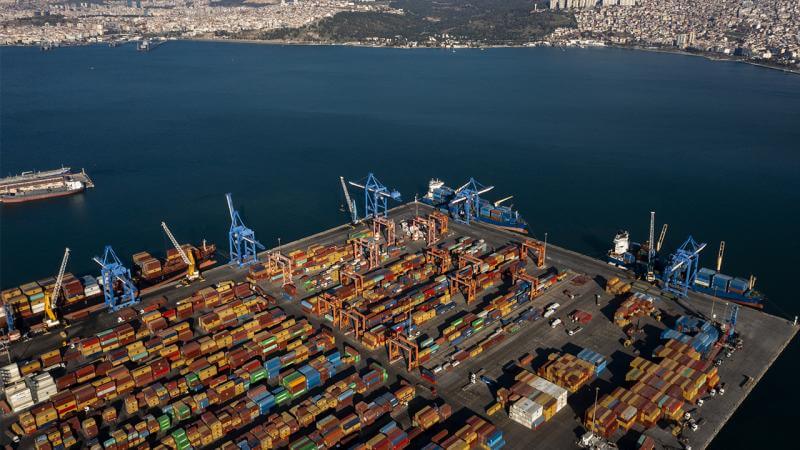Turkish exports to Russia tumbled at the start of 2024, suggesting that a US crackdown on trade with goods Moscow uses in its war in Ukraine is starting to pay off, the Financial Times reported.
Exports from Turkey to Russia fell a third in the first three months of this year compared to the same period in 2023 to $2.1 billion, according to Financial Times calculations based on data from the Turkish Statistical Institute (TurkStat).
The decline comes after the US administration issued an executive order in late December that gives the US Treasury Department the power to hit banks with secondary sanctions if they deal with companies that are subject to US bans because of their links to Russia’s military-industrial complex. The White House implemented the measure in a bid to stymie trade in goods such as microchips that Russian President Vladimir Putin needs for his war against Ukraine.
Turkey is among a group of countries that recorded a large increase in trade in these so-called high-priority battlefield goods since Russia launched its full-scale invasion in early 2022.
The US along with its partners, such as the EU, have lobbied governments including Ankara to curb this trade. The executive order was seen as a way for Washington to exert pressure on the private sector directly since international banks rely heavily on their access to the American financial system.
The Kremlin has complained of “unprecedented, open, aggressive pressure” from the US against banks in Turkey.
Similar problems have arisen in countries that have become conduits for rerouting trade to Russia such as China and the United Arab Emirates as well as former Soviet republics including Armenia and Kazakhstan.
Kremlin spokesperson Dmitry Peskov said earlier this month that Russia and Turkey were “constantly holding working level contacts on all financial issues looking for a way out of this situation.”
“It’s obvious what the reason for these problems is. It seriously damages the interests of Russian and Turkish economic operators,” Peskov said.
The steep decline in exports from Turkey to Russia was recorded from December 2023 to February 2024 before a slight recovery in March. The flows remain below the level of March 2023, a potential indication that Turkish banks are calibrating their sanctions compliance strategy.
Seasonal agricultural flows contributed to the overall drop, but the bulk of the decline has come from a reduction in exports of mechanical goods, vehicles and other categories of export that rapidly expanded following Russia’s full-scale invasion of Ukraine.
Ukraine’s allies have identified specific “high-priority” items that they are particularly concerned about reaching the Russian defense sector — a list that includes ball bearings, lasers and computer equipment.
Turkey’s exports of the most sensitive of these goods stood at $8.8 million in December, before tumbling to $2.2 million by February and recovering slightly to $5.2 million in March.
The signs of slowing Turkish-Russian trade come amid an improvement in Ankara’s relationship with Washington this year. President Recep Tayyip Erdoğan dropped his veto on Sweden’s accession to NATO while the US agreed to sell Turkey billions of dollars’ worth of F-16 fighter jets.
A visit by Putin to Turkey, originally scheduled for before Russia’s presidential election in March, has been postponed. Peskov said last week that a date for the trip had not yet been set.
Turkey’s energy minister told FT this week that Ankara was keen to “diversify” its energy supply at a time when it is dependent on Russian gas and oil to fuel its $1 trillion economy. Russia is also building and will operate Turkey’s first nuclear power plant.


